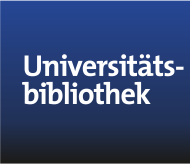What do I need to know?
Frequently asked questions about OPUS
This section provides answers to common questions about publishing on the OPUS publication server and the requirements for submitting documents.
The OPUS publication server allows all members of European University Viadrina to publish the following types of electronic documents:
![]() Working papers, discussion papers, research papers
Working papers, discussion papers, research papers
![]() Journal issues
Journal issues
![]() Newspaper or magazine articles
Newspaper or magazine articles
![]() Reports
Reports
![]() Books (monographs)
Books (monographs)
![]() Dissertations
Dissertations
![]() Research data
Research data
![]() Conference proceedings
Conference proceedings
![]() Master's theses
Master's theses
![]() Periodicals and publication series
Periodicals and publication series
![]() Preprints
Preprints
![]() Reviews
Reviews
![]() Book chapters and contributions to anthologies
Book chapters and contributions to anthologies
![]() Lectures (e.g., university or inaugural lectures)
Lectures (e.g., university or inaugural lectures)
![]() Academic articles
Academic articles
For long-term archiving, the University Library recommends submitting text documents in PDF/A format. If your document was created using Word, LaTeX, or another standard word processing tool, please follow the instructions provided in the OPUS tutorial for file conversion.
A complete list of supported file formats is available on the OPUS help pages.
OPUS operates on a document server provided by the Cooperative Library Network Berlin-Brandenburg (KOBV) to support long-term digital preservation. The University Library forwards electronic documents—such as dissertations and habilitations—to the German National Library (DNB), which mirrors them on its archive server. The DNB guarantees long-term access and preservation by assigning a persistent identifier (URN).
The University Library does not object to a subsequent publication by a commercial publisher. However, you must ensure that the selected publisher does not object to a prior electronic publication. When signing a publishing agreement, confirm that it does not conflict with or limit the existing online version, especially with regard to the assignment of exploitation rights.
More information is available under → Open Access and Your Publishing Contract.
Each faculty at Viadrina authorizes the digital publication of dissertations. Submission procedures and timelines are governed by the respective doctoral regulations:
![]() Faculty of Social and Cultural Sciences
Faculty of Social and Cultural Sciences
![]() Faculty of Business Administration and Economics
Faculty of Business Administration and Economics
When publishing a dissertation on OPUS, please follow the step-by-step instructions in the tutorial and observe the specific requirements for dissertations.
Additional materials required for submitting a dissertation include:
![]() Declaration of consent for digital publication
Declaration of consent for digital publication
![]() Authorization from the doctoral committee
Authorization from the doctoral committee
![]() Five printed copies of the dissertation (identical to the digital version)
Five printed copies of the dissertation (identical to the digital version)
Metadata refers to structured information describing the form and content of a document. For OPUS publications, metadata constitute the bibliographic description of the submitted work.
OPUS uses the internationally recognized Dublin Core Metadata Element Set, which consists of 15 core elements.
Published documents are visible and searchable in the following databases and repositories:
![]() Viadrina Library OPAC (Advanced Search → Publication at EUV / Special Collection: OPUS)
Viadrina Library OPAC (Advanced Search → Publication at EUV / Special Collection: OPUS)
![]() BASE (Bielefeld Academic Search Engine)
BASE (Bielefeld Academic Search Engine)
![]() COAR (Confederation of Open Access Repositories)
COAR (Confederation of Open Access Repositories)
![]() DNB-Katalog (German National Library)
DNB-Katalog (German National Library)
Documents published electronically are subject to the German Copyright Act (UrhG). Under § 53, users may create personal copies or printouts for scientific or non-commercial use.
Additionally, you may choose to apply a Creative Commons licence. These licences enable broader reuse, including redistribution, copying, or adaptation of your work—while allowing you to define the conditions (e.g. attribution, non-commercial use or no derivatives).
Your question was not included? Then please contact opus@europa-uni.de.
